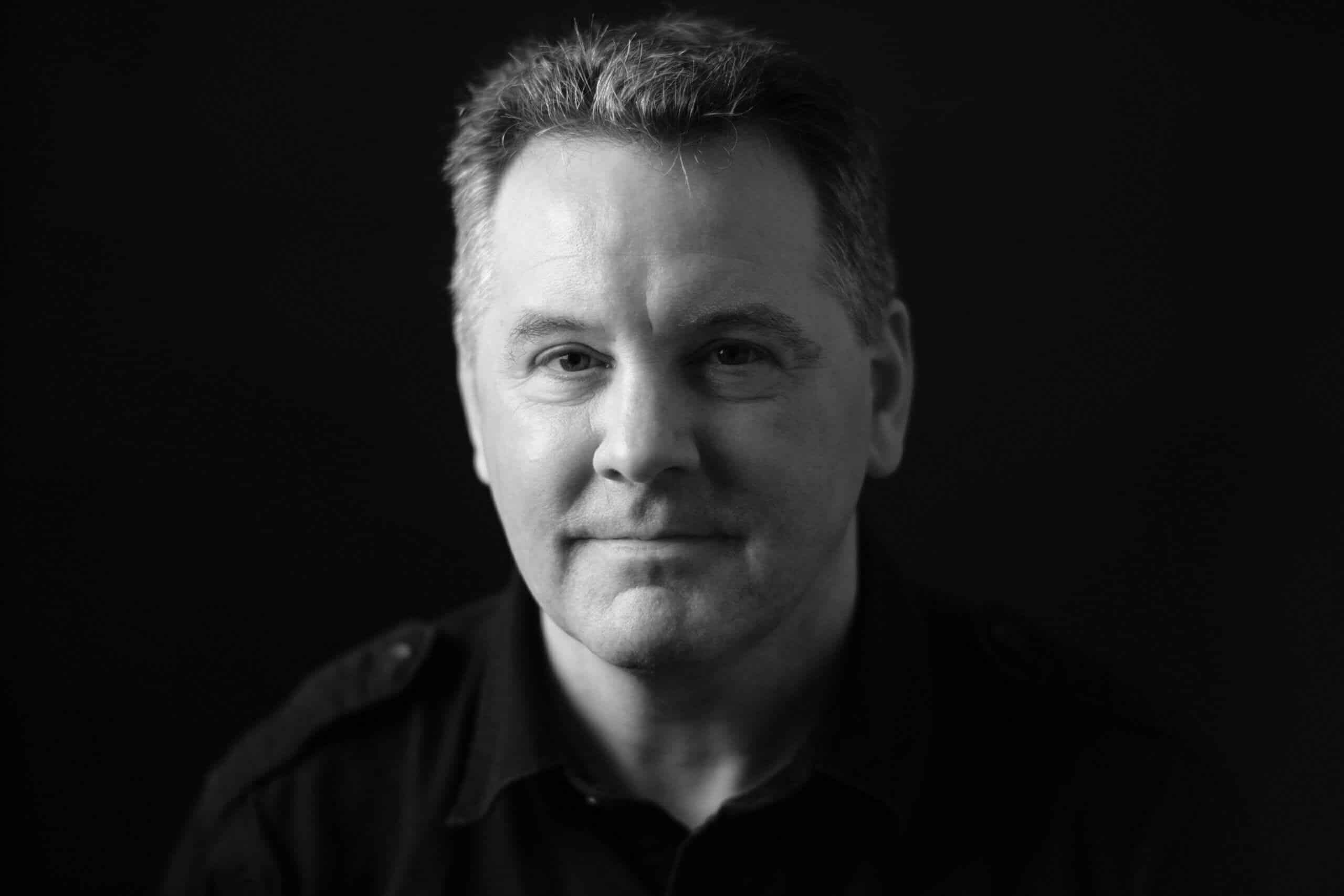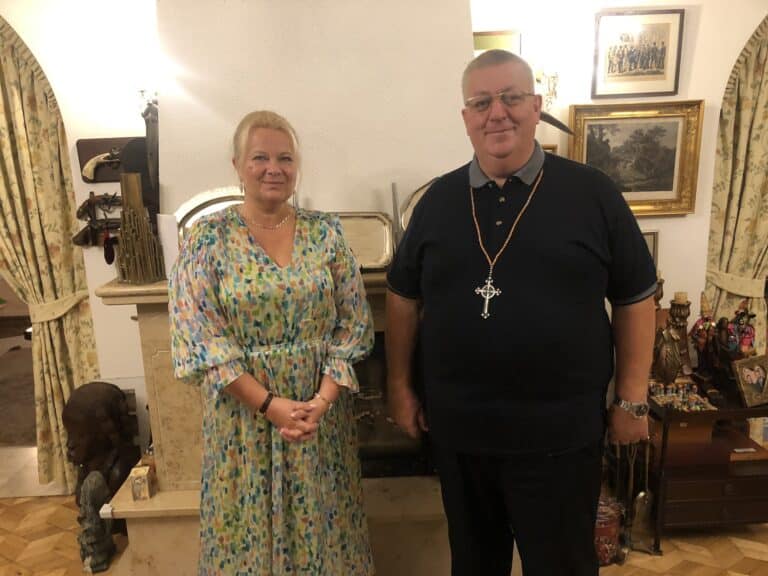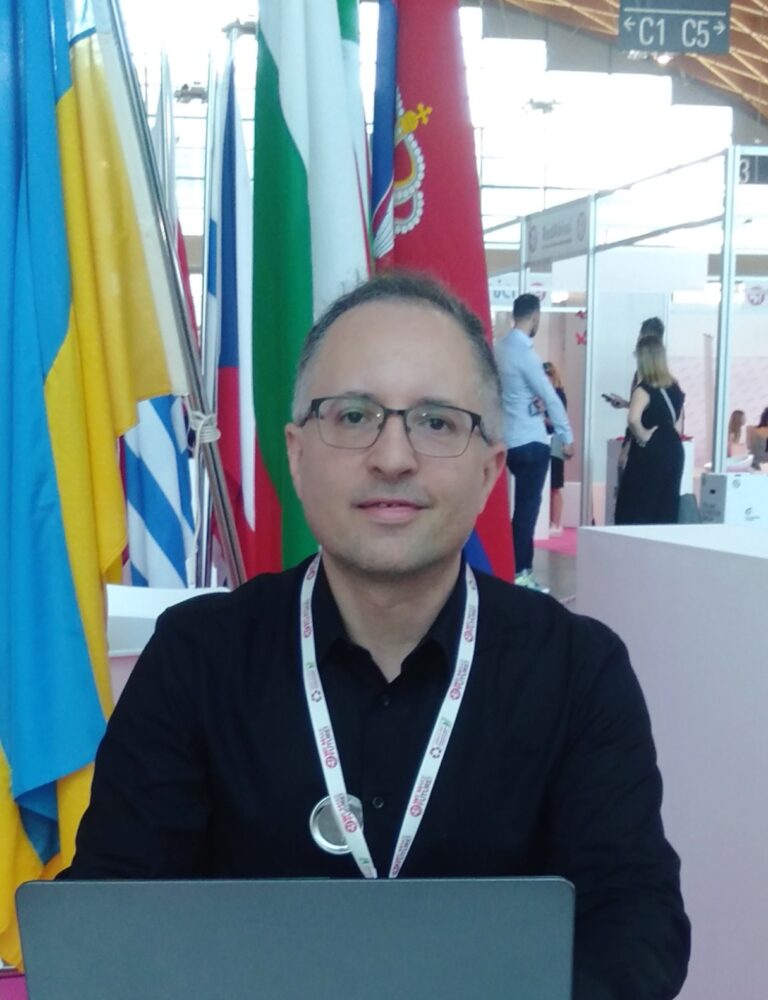Committed to democracy, satire and alcohol
Jo Harper is a British freelance journalist and writer with a PhD in Polish politics from the London School of Economics and Political Science. He’s been living in Poland on and off for the past 28 years, working for, among others, Deutsche Welle, the BBC, Politico and the Polish Press Agency. He’s the author of the book ‘Our Man in Warszawa. How the West Misread Poland’. Privately – a husband and father of three.
Where did your interest in Polish politics specifically come from?
My dad and stepmother had friends who were Polish and my dad used to come to Poland in the late 70’s and 80’s, so we’ve had this friends/family connection to Poland pretty much since I can remember. One time my dad visited Poland in the early summer of 1980, right before the historic August and the birth of Solidarność. He was back to England and suddenly we had people we couldn’t reach, all communication ended, travel was cut off… That was the beginning of my fascination with Poland, I think.
You first came here 28 years ago. That was a different time and a very different country…
Yes – in summer 1994. One of the pre-conditions of doing my PhD was being able to read in Polish so I came here to learn the language during the holiday. I spent a month in Sopot at a language school. I remember drinking beer and spending a lot of time on the beach. It kind of changed my perception of Poland. I thought I was coming to the freezing North of Poland – what did I know? /laugh/ And it was really lovely. Then I went back to London, started my PhD and later on was back to Poland for my fieldwork in political science at the Jagiellonian University in Kraków. That was very interesting because in 1993 the post-communists came back and in 1995 Aleksander Kwaśniewski was elected president. I remember how in the UK everybody was saying – ‘How is that possible? Four years ago you kicked them out and now they are back?’
What would you say is particularly interesting specifically in Polish politics?
The most interesting to me is the depth of commitment to democracy. It would be difficult to have a dictator in Poland. People have tried to gain total control and probably will try in the future, but there is this extremely democratic culture here. Polish politics has of course the same dynamic as all other countries, really. The public discourse is quite ugly at times, but there is a sense that a single ‘strong man’ (or woman) could dominate here. Perhaps that noise, that fighting and shouting is actually a clever way of stopping one authority from taking it all. Józef Piłsudski didn’t make a very good dictator, Wojciech Jaruzelski tried and failed. Polish people are generally very individualistic and that manifests in Polish politics as well. It’s quite an eccentric place really and you can see that this depth of commitment to democracy is being constantly tested – in the media sphere or judicial sphere. Another interesting feature of Polish politics is that you don’t have a very strong left. There is no real tradition for reasons that are understandable and explicable, but that also means conservative tends to dominate.
You’ve been here for a very long time, your professional life is based in Poland and revolves around Poland, you are married and have children here. It seems like you’re practically Polish.
Actually, I’m more in a limbo. Even though a long time ago I made a decision to immerse myself into Polishness as much as I could and try to be fully Polish, I still feel like I’m not one thing, nor the other. Plus my Polish is far from perfect.
What would have to happen for you to finally get onto the Polish side of that dual identity?
Probably I would have to learn to complain without feeling guilty about it. The British complain but tend to feel that they really shouldn’t. Poles complain and they feel very happy about it, so that lack of guilt would be the first thing on my list. /laugh/ But on a more positive note, Polish people are able to find a certain joy of life and spontaneity – they do things that are not planned. You could say that Polish culture is a little schizophrenic – it is very family oriented, full of routine and regimented in terms of what you should or shouldn’t do, but once you break out of that – everything’s allowed. You have the best parties and there’s a kind of creativity about having fun. Also food in general is very important here. People talk about the tomatoes they bought, advise each other where to buy good potatoes, everyone has a favorite place to buy bread. You really do have that in common with the Italians and French. In UK food is not that big a deal, it’s more a fuel. And also we have much more mass production and supermarket shopping.
Your wife is Polish and like you, she is a quite busy person.
Yes, she works for an investment fund. We met ten years ago and have been married for nine. One year into our marriage we had twins and one year later our third son. I really don’t know how she does it all. She is a superwoman. A real Matka Polka.
What would you say is the strangest thing about Poland, that you cannot find elsewhere?
Architecture. You have absolutely incredible churches in Poland, especially in small towns or villages. They either look like spaceships or UFOs fallen from the sky. /laugh/ I guess it’s in large because a lot of the historic ones were destroyed during the war – and also a symbolic statement against the drabness of communist architecture.
As someone who comes from the cradle of the Monty Python’s Flying Circus, do you find Poles to be funny? Do we have a sense of humor?
Poles have very black sense of humor. Sometimes it’s so dark it’s very close to the truth. I guess it’s a kind of defense mechanism, full of self-deprecation and helplessness in the face of fate. I remember from early years here that everyone was watching the Mann and Materna show – and I always enjoyed the laconic satire commenting on a reality you have little control over. The Polish sense of humor comes from a place where things are happening, often terrible things, but as you can’t do anything about them, why not laugh! All you can do is laugh. And drink, of course. /laugh/







